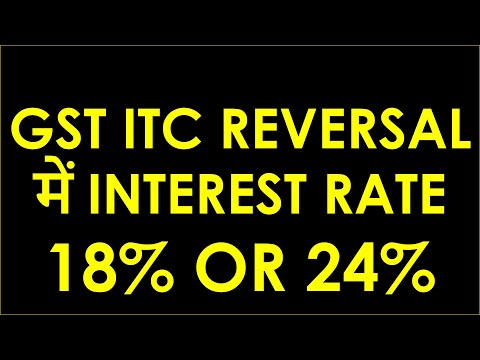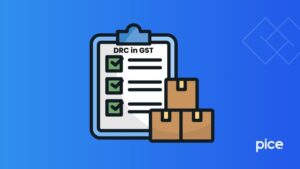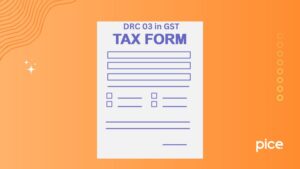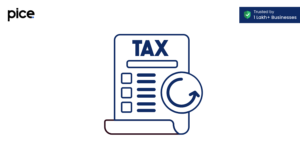Interest on Reversal of ITC under GST
- 3 Sep 24
- 11 mins

Interest on Reversal of ITC under GST
- What Is ITC Reversal?
- Calculation of ITC Reversal
- Can ITC Reversal be Claimed Again?
- Interest on Excess ITC Claimed
- Interest on ITC Reversal
- Interest on Excess ITC Availed But Not Utilised
- What Is The Penalty For Wrong ITC Availment Under GST?
- Judgments Around Wrong Availment of ITC
- Manner of Computation of Interest Under Section 50(1) of CGST Act
- Whether Interest is Leviable on Gross Liability or Net Tax Liability
- Interest is Leviable on Credit Available But Not Utilised
- Conclusion
Key Takeaways
- Interest on ITC Reversal: Reversing wrongly claimed ITC attracts 18% interest per annum, emphasizing the importance of accurate claims.
- Conditions for ITC Reversal: ITC reversal is required in cases like non-payment to suppliers within 180 days, use in exempt supplies, or goods loss.
- Procedure for ITC Reversal: Rule 42 and Rule 43 outline the steps for reversing ITC on inputs, input services, and capital goods, ensuring compliance.
- Reclaiming Reversed ITC: Reversed ITC can be reclaimed if the supplier rectifies discrepancies in subsequent returns, highlighting the need for vigilance.
Penalties for Wrongful ITC Claims: Penalties and interest apply to excess ITC claims, stressing the need for precise tax management and compliance.
One of the critical aspects businesses must manage is Input Tax Credit while navigating the intricacies of GST compliance. Discrepancies in claiming ITC can lead to repercussions, particularly in interest liabilities. In this blog, we will discuss three important aspects of ITC management: the interest in a reversal of ITC under GST, the procedure of ITC reversal and ITC that has been availed but not utilised.
By gaining a clear understanding of these terms, businesses can avoid the risk associated with incorrect ITC claims and ensure accurate compliance with the regulations.
What Is ITC Reversal?
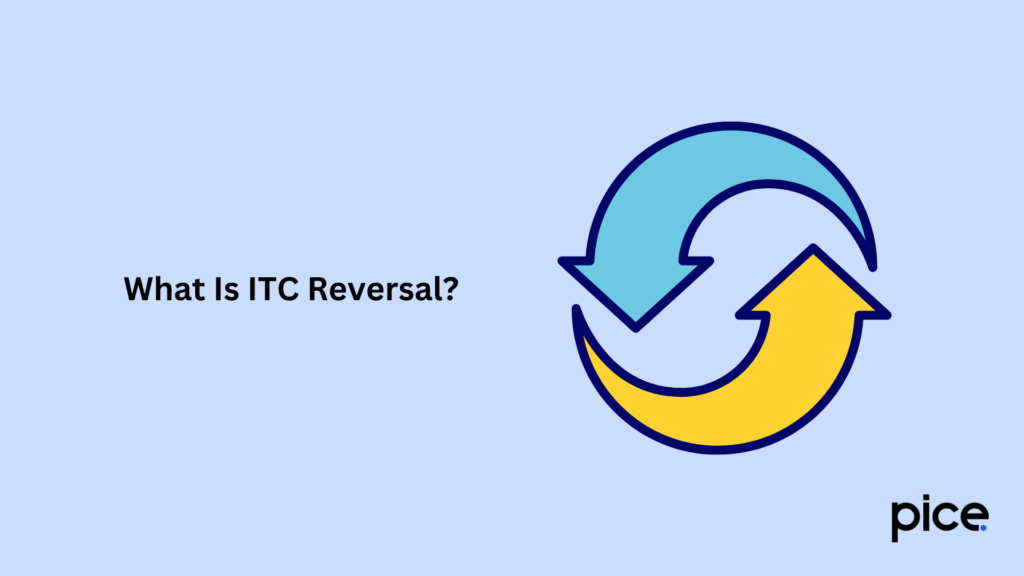
Input Tax Credit (ITC) reversal is when the credit on input services or capital goods is returned, reduced or reversed. ITC reversal is applicable under certain circumstances as per the GST regulations.
The ITC that was wrongly claimed should not only be reversed but the amount should be paid by the next month.
There are certain circumstances where ITC reversal is applicable. Let us discuss them:
| Circumstances | When Is ITC Reversal Required |
| The recipient fails to pay full/part consideration to the supplier | Within 180 days from the invoice's date of issue |
| Inputs for an exempt supply | On a periodic basis --monthly or yearly |
| Cancellation of registration | While filing form REG-16 |
| Reversal of 50% of ITC under special rules | When filing regular returns |
| ITC that has availed upon ‘blocked credits’ | From filing of returns to the date of filing annual returns |
| Inputs used in goods that were either destroyed, stolen, or lost. | During filing of return according to the month in which goods were lost/destroyed/stolen |
| Inputs that were provided as free samples | During the filing of returns according to the month of free samples distribution |
Calculation of ITC Reversal
There are two types of services where ITC reversal is applicable—capital goods and input or input services. Let us delve into both these cases in further depth.
Rule 42: Reversal of ITC on Inputs/Input Services
Here is a step-by-step process for calculating ITC reversal on input services:
Step 1: First, separate the credits that are not eligible for the input tax credit claim.
| Variable | Explanation |
| T | Total input tax that is paid credit on inputs and input services |
| T1 | The specific credit that is attributable to inputs services/input (non-business purpose) |
| T2 | The amount of input tax attributable to inputs/input services (exempt supplies) |
| T3 | Input Tax that are blocked credits |
Step 2: Decrease T1, T2 and T3 from the total input tax credit and calculate the common credit
| C1 | ITC credited to electronic credit ledger T – (T1 + T2 + T3) |
| T4 | Specific credit on inputs/input services (including zero-rated supplies). |
| C2 | Common credit C1 – T4 |
Step 3: Finally, follow the given formula to compute the total amount of input tax credit out of common credit that is to be reversed:
| D1 The ITC attributable towards exempt supplies out of common credit: (E÷F) × C2 Where: E: Aggregate value of exempt supplies during the tax period F: Total turnover in the State of the registered person during the tax period D2 ITC attributable for non-business purposes out of common credit: 5% of C2 C3 Remaining eligible ITC out of common credit: C2 – (D1 + D2) |
Rule 43: ITC Reversal on Capital Goods
Follow the step-by-step process to compute the reversal of ITC on capital goods:
| Variable | Explanation |
| Tm | Tc ÷ 60 Amount of ITC attributable to a tax period on capital goods during their useful life |
| Tr | Aggregate Tm of capital goods which have useful life remaining at the beginning of the tax period |
| Te | Common credit attributable towards exempted supplies, calculated as follows: (E ÷ F) × Tr. |
Can ITC Reversal be Claimed Again?
You can reclaim ITC reversal only when the supplier declares the debit notes or invoice details in their valid return. The supplier also has to mention the time period in which the discrepancy was noticed.
On excess claims of Input Tax, interests paid prior are refunded. The amount is transferred to the Electronic Cash Ledger of the recipient. The GST has no provisions for refund in the case of duplication of ITC claims.
Interest on Excess ITC Claimed
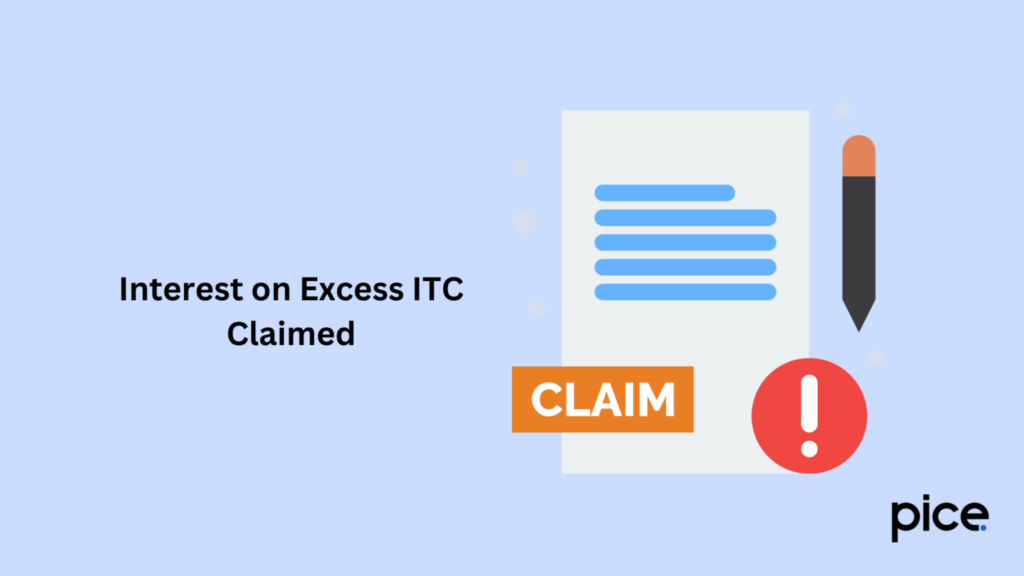
The Government levies an interest of 18% on the input tax credit amount if someone claims for ITC, which exceeds his eligibility. This is a preventive measure against companies wanting to claim more credit than they are entitled to. It also helps keep the fiscal discipline in the GST regime under check.
Interest on ITC Reversal
ITC reversal implies the reversal of the ITC amount found ineligible upon inspection. The rate of interest on ITC reversal is 18% per annum. Hence, the interest on the wrongly claimed amount is calculated from the date of the wrongful claim to the payment date.
Interest on Excess ITC Availed But Not Utilised
The GST laws have undergone frequent retrospective amendments over the years. Initially, the laws emphasised interest payments on excess ITC claims, even if unutilised. However, the amended Section 50(3) of the CGST Act says that interest applies only to the net tax liability paid via the electronic cash ledger.
This implies that if excess credit is claimed but not utilised, and timely reversed without being compensated against output tax liability, no interest should be charged.
What Is The Penalty For Wrong ITC Availment Under GST?
As per GST provisions, on wrongly availing ITC, fraudulence or wilful misstatement, there will be a hefty penalty payable. This penalty mechanism ensures that the person chargeable abides by the GST rules, regulations and laws. Let us look at some of the consequences of violation of these laws:
- If someone wrongly avails ITC, it needs to be reversed within the common time limit. Failure to do so can lead to penalties.
- If an entity wrongly avails of transitional credit, it has to pay a penalty of the entire ITC amount.
- Section 50 of the CGST Act says that interest can only be charged on the wrong utilisation of ITC at a rate of 24%. No interest can be charged for just wrongly availing ITC.
- Section 122 of the GST Act condones charging penalty for wrong utilisation or availment of input tax. Hence, even if someone wrongly avails of ITC but doesn't use it, he/she has to pay a penalty.
- If the department notices any fraudulent attempt to escape paying taxes, it can increase the penalty amount.
Judgments Around Wrong Availment of ITC
Through the years, many courts have given their verdicts on cases of wrongful availment of ITC. Some of them have been enlisted below:
- Judgement 1: M/s Apathy Hotel vs. Assistant Commissioner (ST), 2021: In this case, the Madras High Court investigated a case of wrong availment of ITC. The primary confusion in the case concerned imposing a penalty upon the wrong availment but not the utilisation of ITC. The final verdict of the court exempted the taxable person from the burden of penalty charges.
- Judgement 2: Pretibial Processors vs Union of India, 1996: Here, the Supreme Court demarcates the clear boundaries between tax, interest, and penalty. The court clearly stated that interests are levied by the government as compensation for withholding tax revenues. Likewise, a penalty is imposed owing to a violation of tax laws.
- Judgement 3: Refex Industries Ltd vs. Assistant Commissioner, 2020: This case was dealt with by the Madras High Court. It was associated with the denial of ITC on input services before the GST came into action. The petitioner claimed that this denial gave way to a lot of difficulties. The court gave its verdict in favour of the petitioner. It also stressed the importance of interpreting the transitional provisions liberally. The verdict upholds the restoration of the sanctity of the GST regime.
Manner of Computation of Interest Under Section 50(1) of CGST Act
Section 50(1) of the CGST Act deals with interest on late payment of tax. If a taxpayer fails to pay the tax to the government, an interest is charged at the GST rate of 18% p.a. The period begins from the allotted date to the actual date of tax payment.
The amount of interest paid will get debited to the Electronic Liability Register and the liability for the interest can be adjusted with sufficient balance in Cash Ledger.
Whether Interest is Leviable on Gross Liability or Net Tax Liability
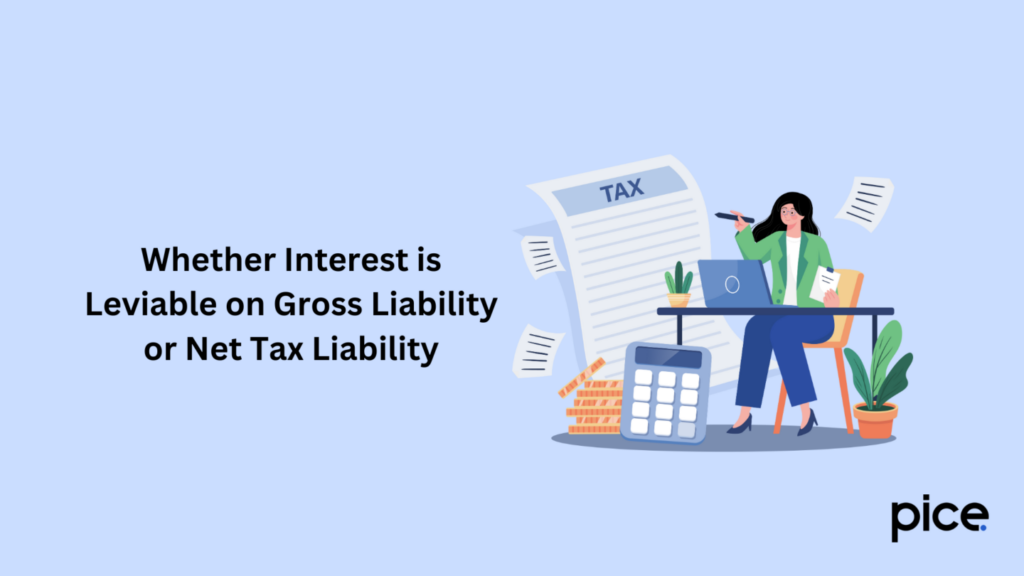
Section 50 of the GST Act says that interest must be imposed only upon the cash payment made against GST liability.
However, there are two exceptions to this rule:
1). If the taxpayer has not paid GST or wrongly claimed ITC or generated a refund for any reason apart from fraud, or
2). If the taxpayer has not paid GST or wrongly claimed ITC or generated a refund to evade tax payments.
Interest is Leviable on Credit Available But Not Utilised
Section 122 of the CGST Act lists the penalties for claiming excess ITC. On claiming excess credit but not utilising it, a penalty ranging from 10% to 100% is imposed. The amount is determined based on the circumstances.
The tax department tries to determine the intent of the taxpayer. If the intent was to avoid paying taxes, a penalty of the entire amount might be levied.
Conclusion
Proper ITC management ensures financial efficiency and business compliance. You can stay aware of the interest in a reversal of ITC under GST, with the aim of avoiding ITC reversals. It is crucial to stay diligent and up-to-date with the Indian finance ecosystem and tax structure for smooth business operations.
💡If you want to pay your GST with Credit Card, then download Pice Business Payment App. Pice is the one stop app for paying all your business expenses.







